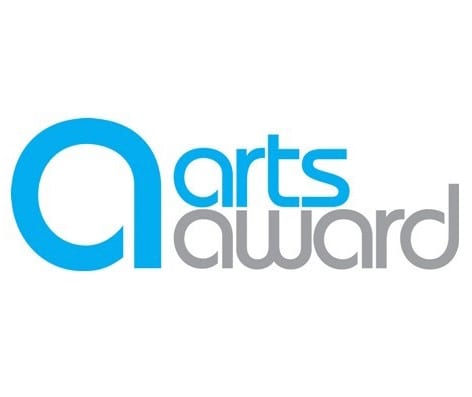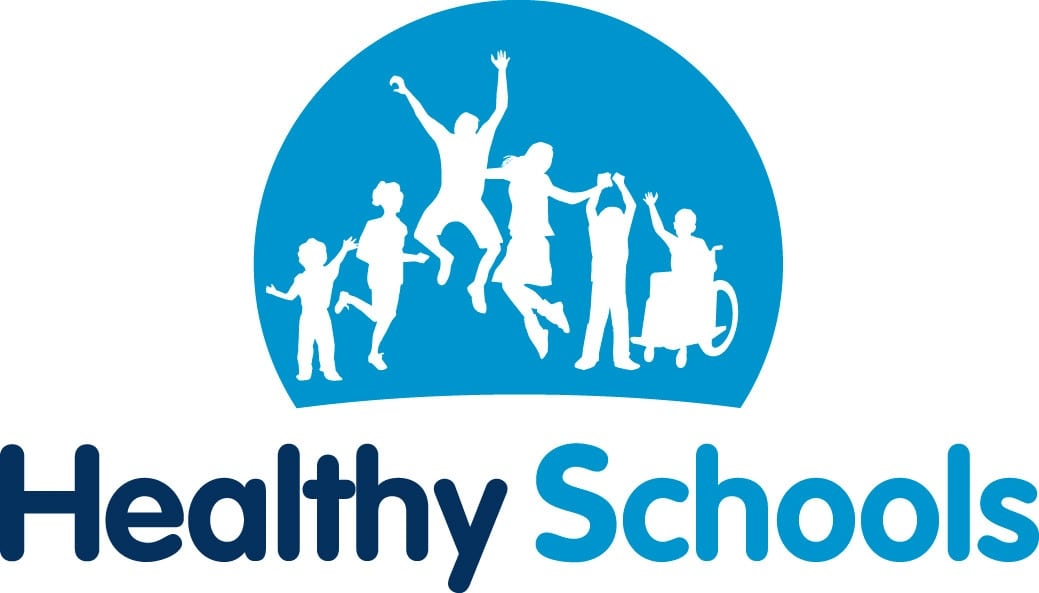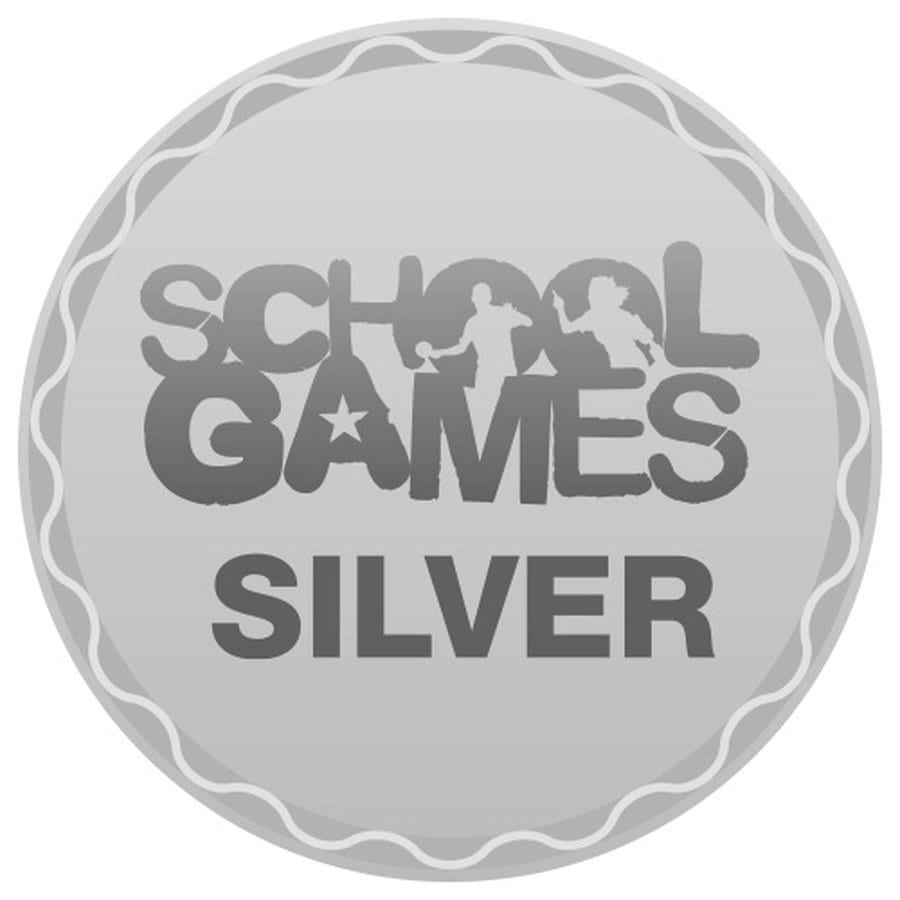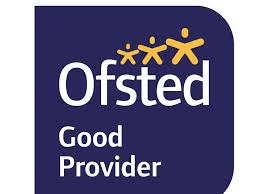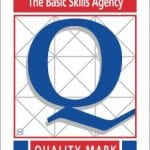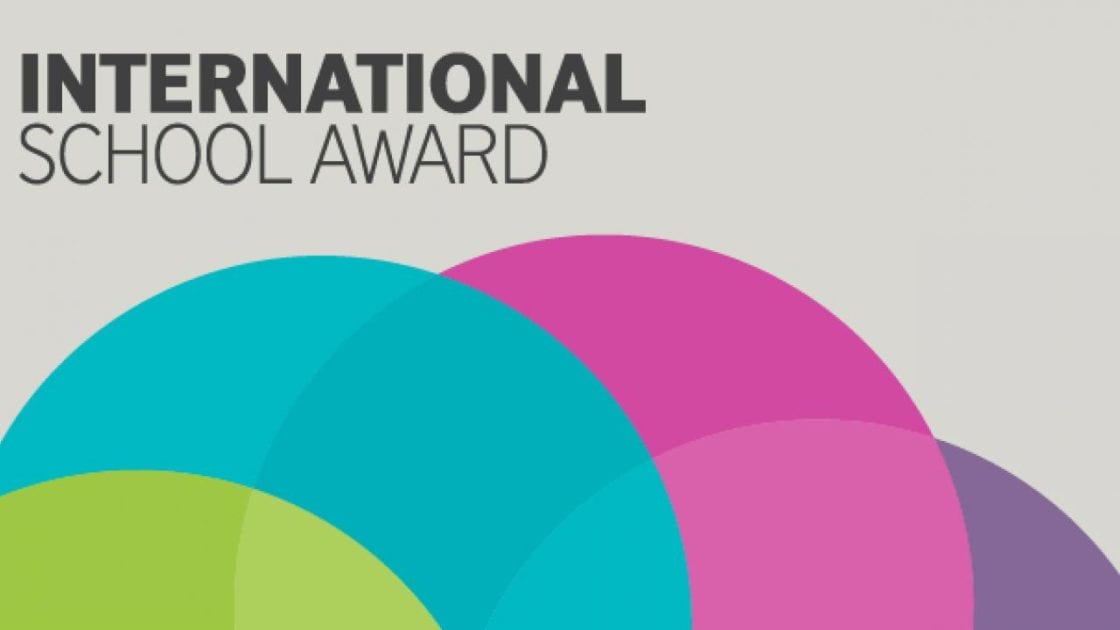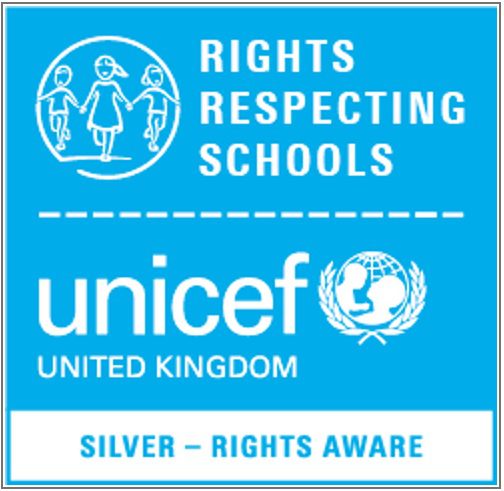English Subject Lead:
English Link Governor: Mrs Lawes
At Stanley Crook Primary School, we believe that a quality Literacy (English) curriculum should develop children’s love of reading, writing and discussion. We have a rigorous and well organised English curriculum that provides many purposeful opportunities for reading, writing and discussion. Our curriculum closely follows the aims of the National Curriculum for English to enable all children to:
- promote high standards in reading through high quality teaching with particular emphasis on the importance of books and literature in enabling children to become fluent, confident, happy and enthusiastic readers.
- read easily, fluently and with good understanding
- develop the habit of reading widely and often, for both pleasure and information
- acquire a wide vocabulary, an understanding of grammar and knowledge of linguistic conventions for reading, writing and spoken language
- appreciate our rich and varied literary heritage
- write clearly, accurately and coherently, adapting their language and style in and for a range of contexts, purposes and audiences
- use discussion in order to learn; they should be able to elaborate and explain clearly their understanding and ideas
- are competent in the arts of speaking and listening, making formal presentations, demonstrating to others and participating in debate.
These aims are embedded across our literacy lessons and the wider curriculum. We will provide the means for children to develop a secure knowledgebase in Literacy, which follows a clear pathway of progression as they advance through the primary curriculum. Rigorous assessment and review will ensure that we are able to provide targeted support so that all children experience success in literacy; we believe that a secure basis in literacy skills is crucial to a high-quality education and will give our children the tools they need to participate fully as a member of society.
The English curriculum ensures that all children are given the best possible start, focusing – as a priority – on early reading and the effectiveness of the wider reading curriculum through understanding:
- the simple view of reading,
- the importance of phonics for reading, writing and spelling
- how children with SEND can access learning and language comprehension through a wide and varied vocabulary gained from a broad curriculum
An effective reading curriculum:
- Provides pupils with the knowledge they need for comprehension
- Ensures that pupils read a lot
- Is supported by the careful choice of increasingly challenging texts
There is a clear focus on the effectiveness of how well children are taught to read fluently, with an urgent focus and attention being given to those pupils who are reading below age-related expectations (lowest 20%/ those pupils who most need to improve their reading) so that all children develop into confident, fluent readers.
Reading is at the centre of the school curriculum and is prioritised by senior leaders and all staff.
The phonics programme in school matches and exceeds the requirements of the national curriculum and Early Learning Goals, with clear term-by-term progression from Reception to Y2 and into Key Stage 2 for those children requiring catch-up support. Phonics is delivered by highly skilled and knowledgeable staff, with ALL teaching and support staff trained in the school’s phonics programme to ensure fidelity in provision.
Sufficient time is given for teaching phonics, reading and writing every day, with pupils being provided time to apply what they have learned. Reading books match the sounds the children know, and the sequencing of reading books shows a cumulative progression in phonic knowledge that is matched closely to the school phonics programme. This enables children to read with accuracy, improve their confidence with reading and to develop meaning.
Phonics teaching is not delivered within continuous provision. This time is used to develop children’s talk, vocabulary, play and wider curriculum experiences. Teaching time is used to provide children opportunities as a whole-class, or in small groups, to use and apply phonics which has been taught previously.
Early Writing development is supported through the application of dictation activities which allows all children to practise writing words and sentences which use those phoneme-grapheme correspondences they have learned and the letter formation which they have been taught.
PSC is not used as an ‘end point’ and an indicator that pupils ‘can read’. Instead, PSC results and analysis are used to provide staff with an accurate and evaluative understanding of reading capabilities so that progress in reading can be continued post-PSC, and provision appropriately mapped for all children. It is an aim of school that all children are confident, accurate and automatic readers by Year 2.
All staff foster a love of reading through stories, poems, rhyme and non-fiction. Teachers read aloud daily in every Team and express a genuine joy in reading, which is shared by pupils, and these sessions provide valuable opportunity to develop children’s language and vocabulary.
Non-fiction books are used to support learning across the curriculum, with children utilising their strong reading skills to access material to accelerate their development of key knowledge and skills. This develops a deep knowledge, which then guides children’s independent reading and raises an enthusiasm for reading.
Reading is not limited by book bands, with the value of independent reading choices being recognised as a means to broaden reading experiences and knowledge of different authors.
‘Children learn to read, so they can read to learn.’
CLPE
CLPE is utilised as the core mechanism by which to plan and deliver a reading-rich, book-led curriculum, with text-types carefully sequenced into a whole-school progression plan covering a range of reading genres. This ensures that children experience a wide range of text-types through enriching high-quality book choices, aimed at also promoting pupil’s knowledge and understanding of diversity, inclusion, social responsibility, the causes of social disadvantage and British Values. Text-type progression and sequencing planning also provides children with a wide range of opportunities to enhance their writing skills.
In school, all staff recognise that children learn to read so that they can read to learn.
CLPE Text-type Progression and Sequencing 2023
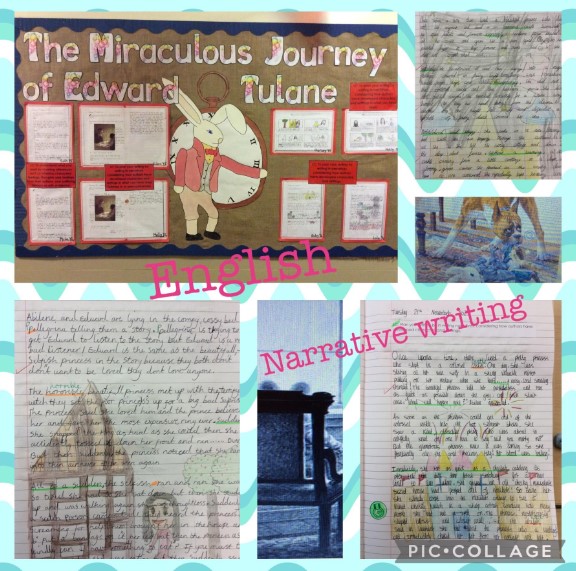
In English, children have written narratives to retell Pellegriana’s story, adding details and securing the order of events. We thought of other Fairytales that linked with our core text book and discussed features of a typical Traditional Tale.
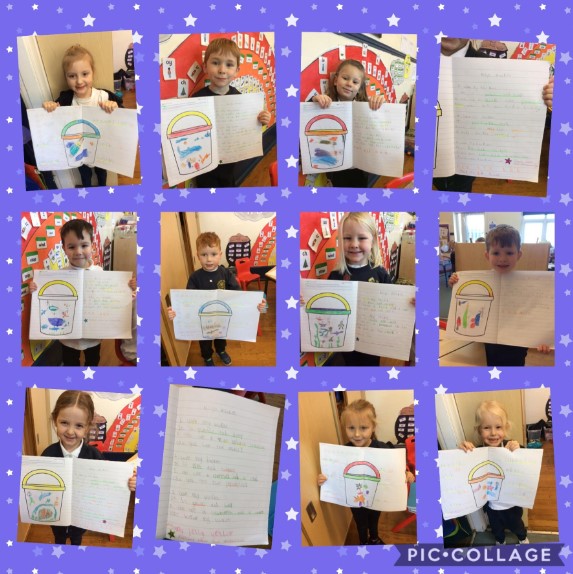
Team Donaldson are really enjoying their new core text ‘Billy’s Bucket’. After reading the story and finding out about all the sea creatures that live in Billy’s bucket, the children created some lovely drawings of what they think his bucket will look like.
Year 1
Year 1 then wrote some outstanding poems about Billy’s bucket, swipe for some examples of our brilliant writing. They worked really hard to come up with their own ideas and worked super hard on their handwriting and presentation.
Reception
Reception children worked really hard to independently write the initial sounds for the sea creatures in the bucket and with support lots of them wrote the whole word.
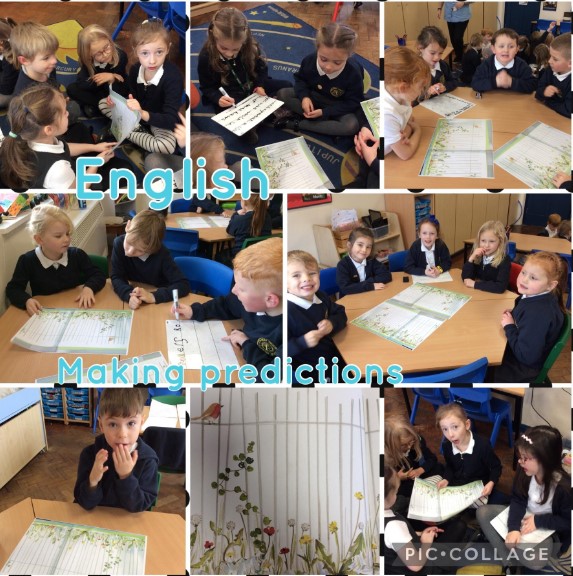
In English, children have been introduced to our new core text. The cover of the book has been wrapped up so children don’t know the title or author, and can’t see the illustrations.
We’ve sneaked a peek at the opening page and children are enjoying a discussion about the pictures, looking closely to respond to what they can see and make inferences & predictions by considering key questions such as; where is this place? What is it like? How do you know? Would you like to go there? Why/why not? Have you ever been somewhere like this? How might it feel to be there?
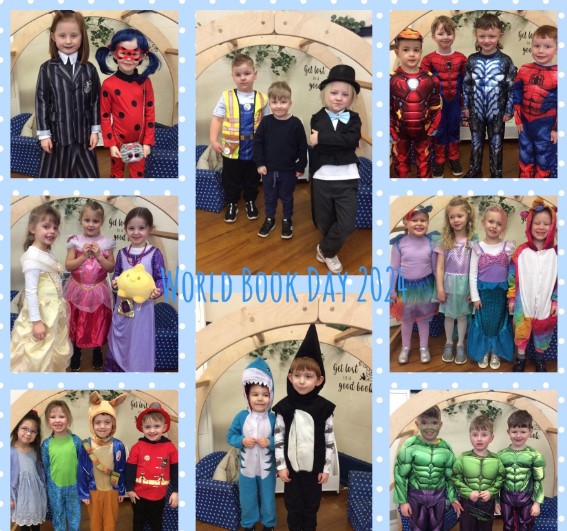
Children celebrating World Book Day 2024!
English Curriculum Maps and Long Term Plans
The English Curriculum Maps have been established for each Team to support in developing a progressive text-based English Curriculum.
These Curriculum Maps demonstrate how school aims to develop children’s understanding of literary forms, wider knowledge of the world, empathy for the human experience and language competency by working with quality texts through carefully crafted planning sequences. They show how language, grammar, phonics and spelling are contextualised in meaningful ways and how to plan for progression; enabling children to work at greater depth in both reading and writing.
They provide an overview of English teaching and learning in each Team, based on text choices and breadth of literary form as well as writing opportunities; across each year group and throughout the Primary School experience.
Please view our English Policy below:
Team Donaldson (Reception/ Year 1)
Team Donaldson English Curriculum Map 23_24
Team Dahl (Year 1/ Year 2)
Team Dahl English Curriculum Map 23_24
Team Cowell (Year 3/ Year 4)
Team Cowell English Curriculum Map 23_24
Team Walliams (Year 4/ Year 5)
Team Walliams English Curriculum Map 23_24
Team Morpurgo (Year 5/ Year 6)
Team Morpurgo English Curriculum Map 23 24
Reading Progression Overview (Year 1-Year 6)
To promote high standards in reading through high quality teaching with particular emphasis on the importance of books and literature in enabling children to become fluent, confident, happy and enthusiastic readers.
‘Children learn to read, so they can read to learn.’
Reading at Stanley Crook Primary School looks like…

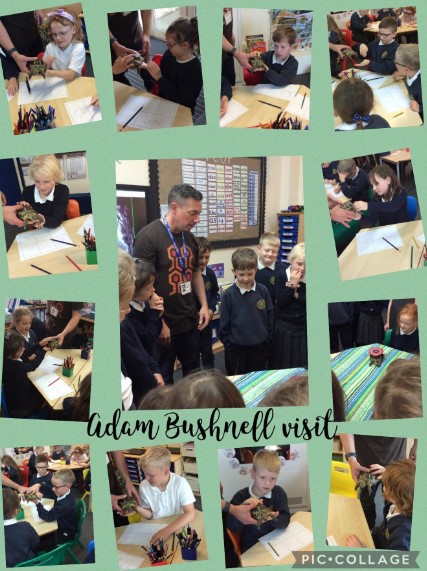
Today, school enjoyed a visit from one of our favourite author and story tellers, Adam Bushnell. He brought his tortoise, Jet, and we’ve been creating our own superhero pet characters to save the world from climate change. Adam was very impressed by the attitude and work ethic of the children!
Writing Progression Overview (Year 1-Year 6)
Writing at Stanley Crook Primary School looks like…

